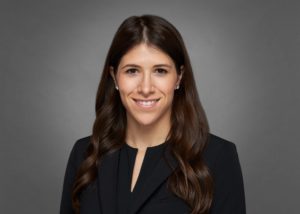Skating Over Copyright Law
Move over Beethoven and Tchaikovsky. After the Sochi Winter Olympic Games in 2014, the International Skating Union changed its rules in figure skating competitions to allow figure skaters to skate to music with lyrics to appeal to younger audiences who tune in to watch the Olympics (goodbye Swan Lake!). Now you’ll find figure skaters skating to Beyoncé, Ed Sheeran and Elton John. Elton John even sent a congratulatory tweet to USA’s Nathan Chen after his incredible performance to a medley of Elton John songs that won him the Olympic gold medal in Beijing.
This rule change raises fundamental questions of copyright law. Most recently, U.S. pairs figure skaters Alexa Knierim and Brandon Frazier were named in a federal lawsuit in Santa Ana, California, along with U.S. Figure Skating (“USFS”), Comcast Corporation, NBC Universal Media LLC, Peacock, and USA Network for copyright infringement for the figure skaters’ performance at the Beijing Olympic Games to a version of “House of the Rising Sun” that was recorded by Heavy Young Heathens. The music group claims that their recording features “an originally composed introduction and unique arrangement that has allowed it to be a very sought after recording” and that “the track represents a very valuable licensing asset for Plaintiffs and is a signature song of theirs throughout the world.” According to the complaint, “the Plaintiffs were never contacted by either Defendants Knierim or Frazier, or their coaches or choreographer, or USFS or Team USA, or the broadcasting networks and streaming services about licensing Plaintiff’s copyrighted track for any performances or broadcasts.”
So what exactly is the protocol?
In order to include copyrighted songs in a television show or a movie, a synchronization license or “sync” license is needed whenever music is synched with video footage. However, luckily for NBC, the Olympics is considered a live event which means that no sync licenses were required and instead figure skating routines are covered by what is known as a “performance right” (i.e., permission to perform or broadcast a piece of music in a public, commercial setting). These same rights apply even though the event’s broadcast was delayed until primetime. While there is no sync license required, the broadcaster is still responsible for obtaining a blanket license that grants them public performance rights from “performing rights organizations,” or PROs. The bottom line is, if a figure skater is performing to Elton John, rest assured that NBC has taken care of clearing this music.
It will be interesting to see how this case plays out and you can bet that we will be watching closely!
 This article is intended as a general discussion of these issues only and is not to be considered legal advice or relied upon. For more information, please contact RPJ Attorney Ylana Stumer Hersh who counsels clients on corporate, corporate finance, entertainment and intellectual property law. Ms. Hersh is admitted to practice law in New York. Attorney Advertising.
This article is intended as a general discussion of these issues only and is not to be considered legal advice or relied upon. For more information, please contact RPJ Attorney Ylana Stumer Hersh who counsels clients on corporate, corporate finance, entertainment and intellectual property law. Ms. Hersh is admitted to practice law in New York. Attorney Advertising.
